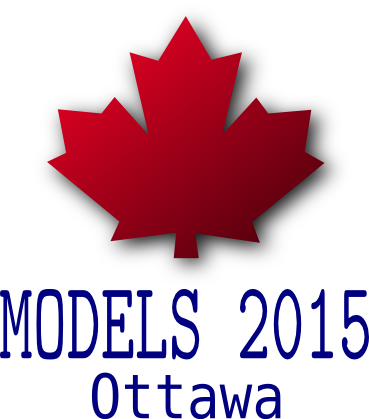Get the Call as PDF.
Model-driven engineering emphasizes the use of models for a higher productivity, better quality and lower maintenance cost. However, MDE has to be integrated into a suitable, perhaps previously existing development process; otherwise MDE cannot deliver its goals, and is unlikely to be adopted in the first place. This workshop aims at investigating how an MDE approach that includes the synthesis of executable systems from models or the use of abstract languages, such as UML, Simulink, or DSLs can be integrated in a development process.
Edition’s focus: This year’s i.MD²P² edition has a special focus on industry-research collaborations for development and process-integration of MDE technologies. Thus, we especially welcome contributions from close industry research-collaborations, targeting at 1) industrial methods for the development of languages, such as DSMLs, or automation support and 2) the question how such methods ensure the seamless integration of the developed technologies into the company's legacy process.
One objective of the MD²P² workshop series is to provide a forum for research on the impact of MDE approaches on development processes. This can cover systematic investigations of the mechanisms that can drive impacts from MDE approaches on development processes and correspondingly constraints on MDE approaches that are implicitly defined by development processes. Further, guidelines, methods, or tools that support practitioners in reusing or adapting development processes when MDE is introduced are welcome. Topics to be addressed can be (but are not limited to):
- Investigations of the question, what aspects of a process are affected by MDE:
- How are different stakeholders integrated in the modeling activities?
- Can modeling tasks be split over multiple roles and phases?
- What is the effect of automated verification methods on testing methodologies and philosophies defined in development processes (e.g. in test-driven development processes)?
- Is there a need to adapt test and quality assurance activities in development processes, such that the diverse modeling artifacts are covered appropriately?
- When is it necessary or beneficial to adapt the number of development process phases or to change the frequency of iterations?
- Synergies: How can the combination with an MDE approach increase (or decrease) the benefits of a process? How can the choice or adaptation of a process increase (or decrease) the benefits of an MDE approach?
- Guidelines and methods that support practitioners in reusing or adapting development processes when MDE
- Co-maturation of MDE and development processes
- Tool support for process integration of MDE
- Feedback on combining/using MDE in traditional processes
- Experiences and approaches for migrating to MDE
The MD²P² workshop series further provides a forum for researchers and practitioners to exchange and discuss experiences on how the use of MDE affects the applied development process. a forum for researchers and practitioners to exchange and discuss experiences on how the use of MDE affects the applied development process. Papers presenting case studies on both, (1) long running use of MDE in context of maturing or steady development processes and (2) on the introduction of MDE, are highly welcome. Aspects to be addressed in the case studies are for example:
- Which stakeholders are involved in modeling tasks? Which stakeholders are not affected by the integration of MDE?
- Which (modeling) artifacts are subject to quality assurance activities, such reviews or testing?
- Are development process phases adapted? Does the number or frequency of iterations change?
- Are there empirical evidences that intended MDE effects occur, e.g. whether front-loading reduces the number of errors in later phases?
Submitted papers (maximum 10 pages) must conform to the Springer LNCS formatting guidelines (http://www.springer.com/computer/lncs). Papers will be peer reviewed by three members of the workshop PC.
